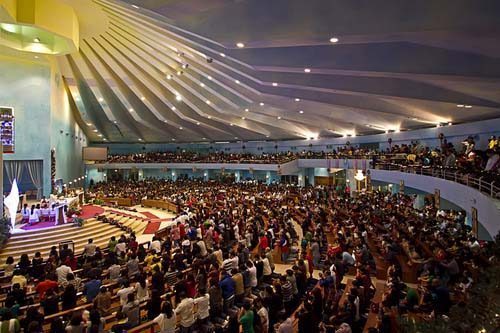
By Ardinny Razania
While Qatar has made great strides in becoming a more inclusive place to live for some non-Muslims, more needs to be done to integrate the nation’s diverse population, a researcher who is studying interfaith issues here has said.
According to a 2011 Gallup poll, only 26 percent of Qataris surveyed would not object to a non-Muslim neighbor, while in Egypt and Lebanon, the majority of people surveyed would welcome the diversity.
But since the establishment of Qatar’s first church since pre-Islamic times in 2008, the relationship between Christians and the government has continued to improve.
Still, residents of non-Abrahamic faiths, including Buddhists and Hindus, would also appreciate recognition, said Asim Koldzo. The Oxford graduate student is exploring interfaith issues here with a grant from the Qatar National Research Fund.
Koldzo, who graduated with an International Relations degree from Georgetown University School of Foreign Service in Qatar (SFS-Q), told Doha News in a recent interview that he has personally observed some of Qatar’s religious dynamics.
Dynamics
“With the high-level dialogue between church leaders and (the) government, things are going on very well,” Koldzo said of the relationship between the growing Christian community and Qatar’s Islamic government. He added that the inclusion of Christians was measured by their “access to churches and senior religious figures.”
Raston Fernandes, a Texas A&M University at Qatar (TAMU-Q) student who has lived in Qatar all his life, agreed that more people are becoming tolerant of Christians here, as demonstrated by an increased acceptance of the Christmas festivities this year.
“Ten years ago, there were just a handful of shops selling Christmas decorations, but just last week I went Christmas shopping in City Center and was surprised at the number of shops that sold Christmas decorations or had already put up Christmas trees,” he said.
Interfaith dialogue
Still, not all religions have been so lucky.
In 2008, Qatar established the Doha International Center for Interfaith Dialogue (DICID) as a result of a recommendation from the Fifth Doha Interfaith Conference in 2007. The center holds annual conferences in which individuals of different faiths to foster dialogue between different religions.
However, the interfaith initiatives in the past mainly involved Christian and Jewish individuals, Koldzo said. He cited social and economic reasons as the main reason behind the exclusion of Hindus, many of who work in lower-paid professions here.
He added that according to the results of his research study, Hindus and Buddhist have pointed out two key issues:
“One is, they don’t have a place for worship, and the other one is that, some Muslims are forcefully trying to convert them,” he said.
But the researcher, who is asking Qatar residents to take his anonymous survey here, remained upbeat about the future.
“What I think Qatar would be smart to do is to make these interfaith initiatives more mainstream, involve more people,” Koldzo said. “I think that will change, in five to ten years, if positive trends continue.”
Thoughts?
Credit: Photo by Lance Cenar
Disclosure: Researcher Asim Koldzo has booked advertising on this website about his survey, although the arrangement did not include editorial coverage.







